All Booked | What I Should Have Been Reading This Summer
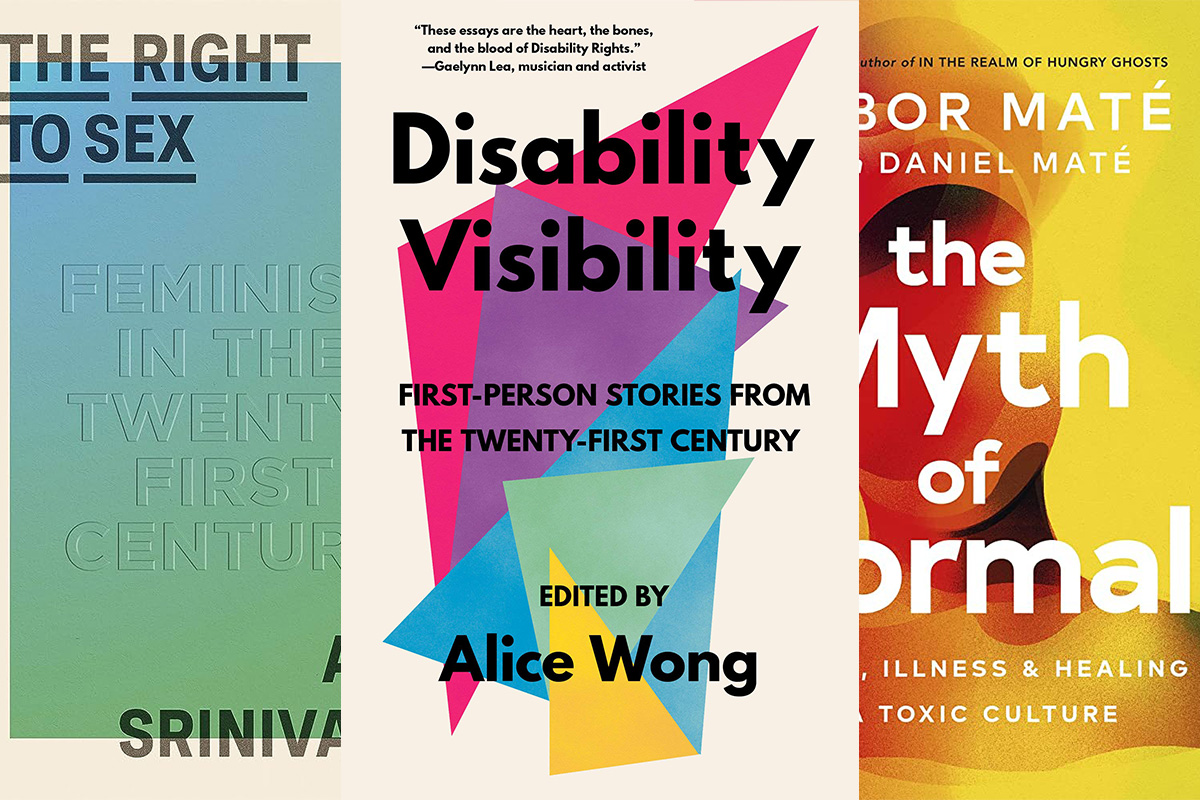
Hi, I’m Ava Talehakimi, the Indy’s Production Manager, filling in for Emily Lee this week.
I set myself lofty reading goals this summer, as one does when they get to summer break and are staring into the expanse of open summer months that are full of opportunities to go on long walks, make beautiful salads, and go through a carefully curated reading list while trying to convince one’s cat to curl up with them.
That curated list included books that fulfilled the following:
- Books that are fun and engaging, so much so that it keeps me off my phone and my Spider Solitaire habit.
- Nonfiction books that will make me a better-informed therapist.
- The books I sought to finish to write this newsletter.
I have yet to make a salad, my walks have been short because I can’t stand the heat, and my cat is still cuddle adverse. And I’ve read a total of two books. I completed my first year of grad school in May, where I’m getting a masters in counseling psychology, and getting back into the habit of reading for myself is taking some time to build up. As someone who used to read upwards of 50 books a year after undergrad, but could not bring myself to read for fun while I was in school, this isn’t unknown to me.
I’m still going to talk about some of the books on my list, however, as they come highly recommended from my peers — burgeoning therapists who I feel lucky to know and whose opinions I value. My original list has around 16 books, titles I write down whenever a professor or student talks about them in class. I’ve narrowed that down to 4 books that I’ve purchased or borrowed and have started reading. They’re sitting on a stack next to me, atop my copy of the DSM 5-TR and Socioculturally Attuned Family Therapy.
And now, dear reader, let’s get into it:
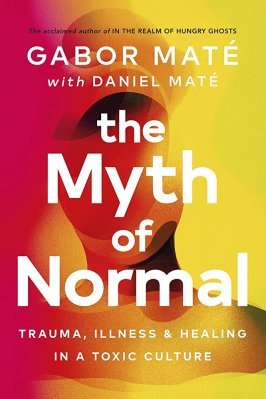
The Myth of Normal: Trauma, Illness, and Healing in a Toxic Culture by Gabor Maté MD with Daniel Maté
This book has come recommended by multiple people whose opinions I admire. Dr. Maté splits the book into four parts, discussing trauma, society’s toxic culture, human development, and the idea of rethinking afflictions as adaptations. I am currently a couple chapters in and really enjoying it. The writing is accessible, clear, and interesting, which is sometimes hard to find with nonfiction books of this nature. I am slightly wary of the “toxic culture” rhetoric, as I believe every generation has had the same moral panic, but I am curious to see how he forms his commentary around it.

How to Do Nothing: Resisting the Attention Economy by Jenny Odell – Odell writes it best in her introduction: “… patterns of attention – what we choose to notice and what we do not – are how we render reality for ourselves and thus have a direct bearing on what we feel is possible at any given time. These aspects, taken together, suggest to me the revolutionary potential of taking back our attention.” Basically, this book centers on the radical act of making efforts to disconnect ourselves from the hyper-productive push in our culture and the demands of social media to take time to rest and connect with nature. I am currently reading this book, and I am surprised by how philosophical it is, some of its passages reading more like a mixture of a memoir and art commentary rather than a critique of the attention economy. I am intrigued by the point Odell is making, but the writing is a bit more dense, and I prefer reading it in short chunks. I don’t think the book is for everyone, but if what I’ve outlined above sounds like it’s up your alley, then I think it’s worth picking it up from the library.
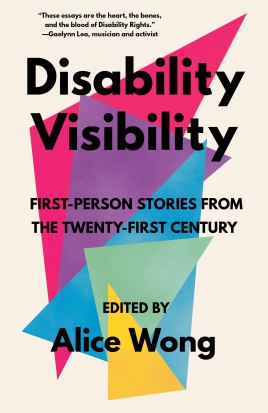
Disability Visibility: First-Person Stories from the Twenty-First Century edited by Alice Wong – Disability Visibility is a collection of essays from contemporary disabled writers speaking to a range of their personal experiences. As I have only read one essay in this collection, I am going to quote from the back cover: “This anthology gives a glimpse of the vast richness and complexity of the disabled experience, highlighting the passions, talents, and everyday lives of this community. It invites readers to question their own assumptions and understandings. It celebrates and documents disability culture in the now. It looks to the future and past with hope and love.” Prior to starting my graduate school journey, Caitlin, former Indy art director and All Booked contributor, recommended this book to me, dubbing it “required reading for all.” That sentiment has been reflected by several of my professors. I hope you join me in diving into this one.
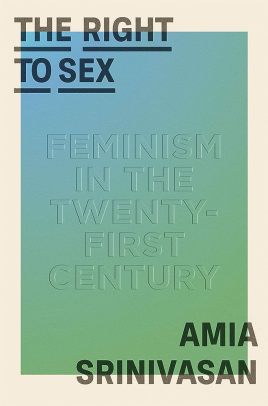
The Right to Sex: Feminism in the Twenty-First Century by Amia Srinivasan – We’ve finally gotten to a text that I can recommend with my whole heart. I started a feminist book club last year amongst friends, and we dissected this book essay by essay over iced tea and cookies. Srinivasan does an incredible job of weaving in the history of the feminist movement through some of her essays, weighing opinions from various feminist groups with opposing viewpoints. Her writing is clear and very easy to follow, and she views feminism through an intersectional lens. I found her book a helpful launching point in finding other notable feminist writers to read and consider. Her essays cover pornography, the #metoo movement, the incel movement, class, and carceralism. If I were to recommend a book in any of my classes, it would be this one.
More recommendations from my list include:
My grandmother’s hands: Racialized trauma and the pathway to mending our hearts and bodies by Resmaa Menakem
A Field Guide to Climate Anxiety: How to Keep Your Cool on a Warming Planet by Sarah Jaquette Ray
Calling Bullshit: The Art of Skepticism in a Data-Driven World by Carl T. Bergstrom and Jevin D. West
I am happy to report that I am also (finally) reading a fun book that is helping me kick my Solitaire habit. That book is The Golden Enclaves by Naomi Novik — the third book in The Scholomance series that features a magic school, monsters, and a dry-humored main character.
Happy reading! I hope these recommendations help you meet any summer reading goals you may have set for yourself.
UPCOMING BOOK EVENTS
Below, you will find a few bookish events coming up in Santa Barbara. If you are hosting a bookish event in Santa Barbara, be sure to submit the event to our online events calendar.
The Literary Club: Bruce Holsinger – Author of The Displacements, A Novel
Tuesday, August 8, Noon. El Encanto, A Belmond Hotel, Santa Barbara
Virtual Romance Book Club
Wednesday, August 9, 5:30 p.m. Virtual
Book Discussion: The Voyage of the Cormorant
Friday, August 11, 2 p.m., Carpinteria Community Library
Diary of a Wimpy Kid Party
Saturday, August 12, 2:30 p.m. Faulkner Gallery, S.B. Central Library
Storytelling and Songs
Saturday, August 12, 6:30 p.m. Bart’s Book, Ojai
LOCAL BOOK SPOTLIGHT
We at the Independent get many books sent to us by local authors, sometimes too many! It’s practically impossible for us to read and review them all, but just because we are busy bees does not mean that they aren’t worth the attention. In an attempt to not completely drop the ball, we have compiled a list of books here that have a local spin. They are all either written by a local author, feature someone in our community, or have another tie to Santa Barbara. I urge you to look through this list. Perhaps you will find your new favorite read!
The following are the most recent titles that have been sent to us. Click here for a more comprehensive list.
1970’s Nature Posters: The Lost Art of Rick Sharp by Rick Sharp
A Forest Journey: The Role of Trees in the Fate of Civilization by John Perlin
If you are a local author and would like us to feature your book in this section, please email allbooked@independent.com with the subject line “Local Author Spotlight.”

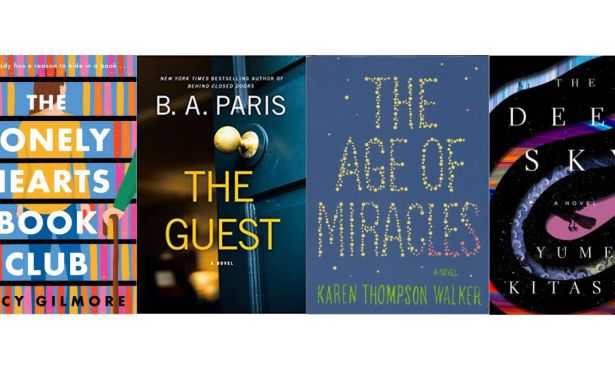
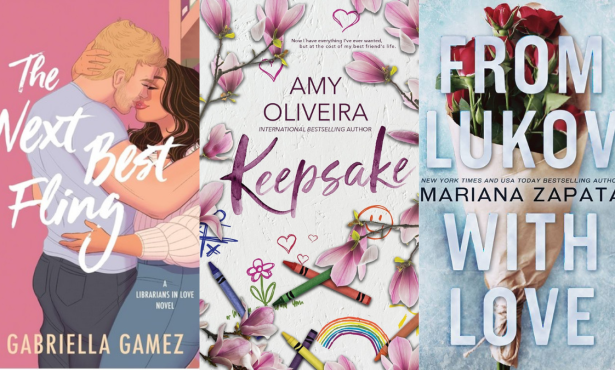
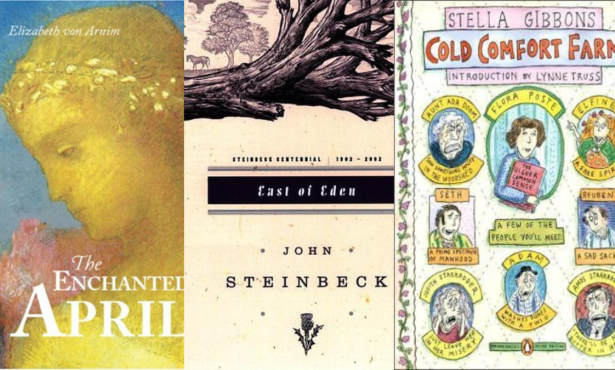
You must be logged in to post a comment.